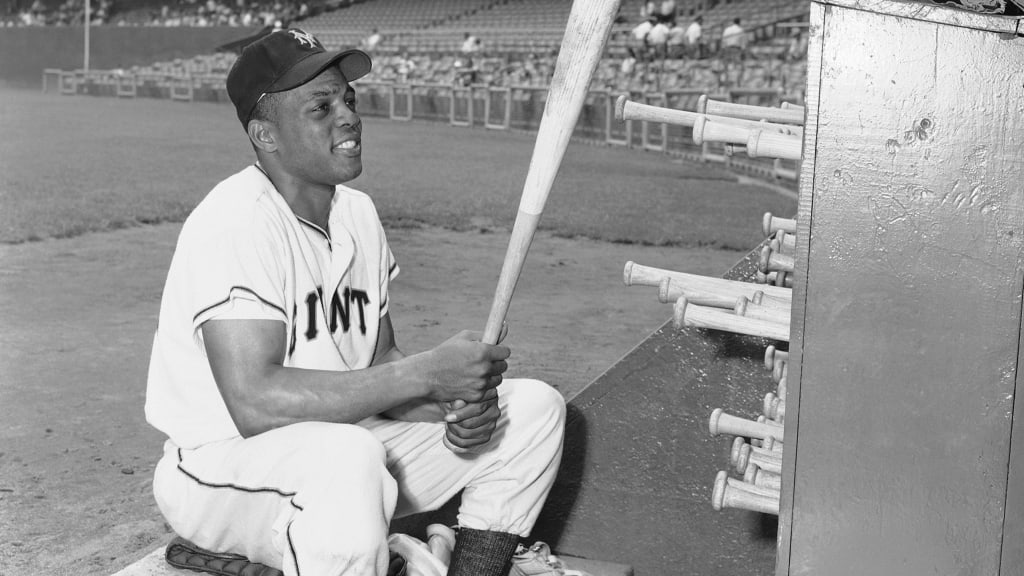
All-Star Game history extends back to 1933, and many of its most prolific participants rank among the sport's greatest legends.
Here is a look at the all-time All-Star Game starting lineup, showcasing the players with the most starts at each position. (Each player¡¯s total number of selections was used as a tiebreaker.)
Note: The start totals listed below refer only to how many that player made at the position in question, though some might have started at multiple spots over the course of their careers.
Catcher: Iv¨¢n Rodr¨ªguez (12 starts, 14 selections)
Pudge and his rocket arm started behind the plate in nine straight seasons (1993-2001) while a member of the Rangers and then three more with the Tigers. The 13-time Gold Glove Award winner and 1999 American League MVP is one of only four players to make at least a dozen total starts for the AL squad.
Backup: Yogi Berra (11 starts, 18 selections)
First base: Steve Garvey (9 starts, 10 selections)
Garvey is the only player in this lineup who has not been elected to the Hall of Fame. But the 1974 NL MVP, who spent 14 of his 19 seasons with the Dodgers, was certainly regarded as a star in his day. Garvey hit over .300 seven times, won four Gold Glove Awards, and was named the All-Star Game MVP in ¡®74 and ¡®78.
Backup: Johnny Mize (8 starts, 10 selections)
Second base: Roberto Alomar (9 starts, 12 selections)
Alomar was an All-Star in every season from 1990-2001, a stretch during which he played for four different teams (Padres, Blue Jays, Orioles, Indians). He started for the AL in all but one season between 1991-2000 and gets the nod here over fellow Hall of Famer Ryne Sandberg by virtue of having more total All-Star selections. While Alomar was a .300 career hitter, he batted only .233 in his 30 career All-Star at-bats.
Backup: Sandberg (9 starts, 10 selections)
Third base: Brooks Robinson (11 starts, 18 selections)
Robinson and Wade Boggs both were in the lineup for 11 All-Star Games, although Robinson started in ¡°only¡± 10 different seasons. (There were two games per year from 1959-62; Robinson started both in ¡®61). Nonetheless, the 16-time Gold Glove Award winner and Orioles legend was MVP of the ¡®66 game in St. Louis, where he notched hits off three different Hall of Fame pitchers: Sandy Koufax (a triple), Juan Marichal and Gaylord Perry.
Backup: Boggs (11 starts, 12 selections)
Shortstop: Cal Ripken Jr. (14 starts, 19 selections)
This completes a dream left side of the infield for Baltimore fans. Ripken started at short annually from 1984-96, then at third base in each of the following three seasons. Appropriately, Ripken¡¯s final start came back at short in 2001, thanks to Alex Rodriguez switching positions with him for the first inning. Ripken later homered and nabbed his second career All-Star Game MVP Award. It was the 17th different season in which he started the Midsummer Classic, an all-time record.
Backup: Ozzie Smith (11 starts, 15 selections)
Left field: Ted Williams (12 starts, 19 selections)
Williams returned from a three-year military commitment in 1946 -- when the game happened to be at Fenway Park -- and reclaimed his rightful spot by going 4-for-4 with two homers, a walk, four runs scored and five RBIs. That contributed to a career All-Star line of .304/.439/.652, including all-time records for RBIs (12) and walks (11).
Backup: Barry Bonds (11 starts, 14 selections)
Center field: Willie Mays (18 starts, 24 selections)
Those 18 starts are a record, although Mays got there in part by logging two per year from 1959-62, when such a feat was possible. He also was a two-time MVP of the event, winning in 1963 and ¡®68. The first of those performances included two of Mays¡¯ six career All-Star Game stolen bases, an all-time record.
Backup: Mickey Mantle (12 starts, 20 selections)
Right field: Hank Aaron (14 starts, 25 selections)
Nobody has been an All-Star more times than Aaron -- who took advantage of the four seasons of multiple games -- and it¡¯s likely that nobody ever will. Hammerin¡¯ Hank also logged 17 total starts, having also made the lineup once apiece at first base, left field and center field.
Backup: Reggie Jackson (9 starts, 14 selections)
Designated hitter: David Ortiz (5 starts, 10 selections)
As expected, the totals here are not as high, in part because All-Star teams didn¡¯t use the DH in NL ballparks before 2011. Prior to that point, Ortiz also made two starts at first base in those off years.
Backup: Edgar Martinez (4 starts, 7 selections)
Starting pitcher: Don Drysdale (5 starts, 9 selections)
The hard-throwing Dodgers right-hander started both All-Star Games in 1959, and also took the ball in ¡®62, ¡®64 and ¡®68. Overall, Drysdale holds all-time records for innings (19 1/3) and strikeouts (19) in the event, with a 1.40 ERA.
Backups: Lefty Gomez, Robin Roberts (5 starts, 7 selections each)
Honorable mentions
These players each started at least 10 All-Star Games but weren¡¯t named at any of the positions above, as either a starter or backup.
Rod Carew (15 starts, 18 selections): The seven-time batting champion split his starts between second base (eight) and first base (seven). His only season as a non-All-Star came in his final year, at age 39.
Stan Musial (14 starts, 24 selections): Stan the Man started multiple games at four positions: left field (five), first base (four), center field (three) and right field (two). He also holds the all-time All-Star record with six homers.
Tony Gwynn (10 starts, 15 selections): Gwynn started games at all three outfield spots and DH, but surprisingly, the .338 career hitter was only 7-for-29 (.241) as an All-Star.
Johnny Bench (10 starts, 14 selections): Bench, who slugged three homers and posted a 1.079 OPS in All-Star Games, made nine consecutive starts behind the plate from 1969-77.
Alex Rodriguez (10 starts, 14 selections): A-Rod¡¯s starts were split between shortstop (four) and third base (six) as he followed Ripken¡¯s path to the hot corner.
Mike Piazza (10 starts, 12 selections): The NL¡¯s starting catcher in all but two seasons from 1994-2005 took home MVP honors by smacking a homer and an RBI double in the 1996 game in Philadelphia.
